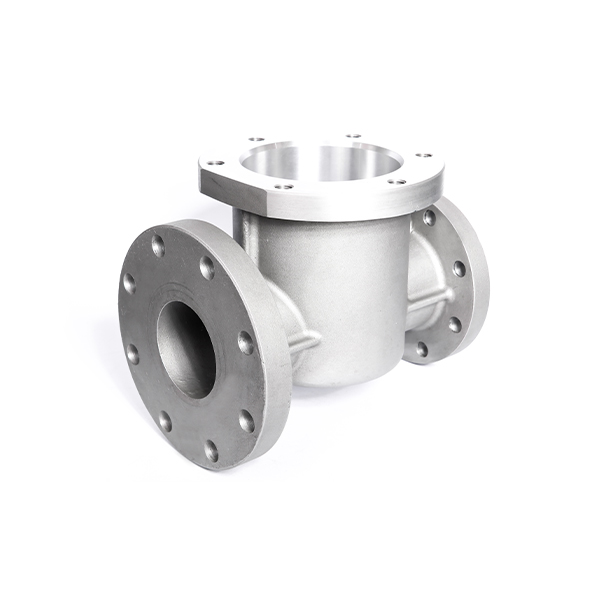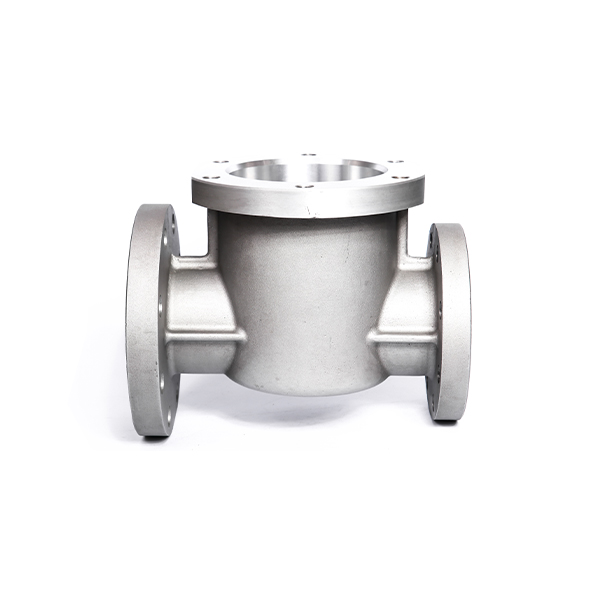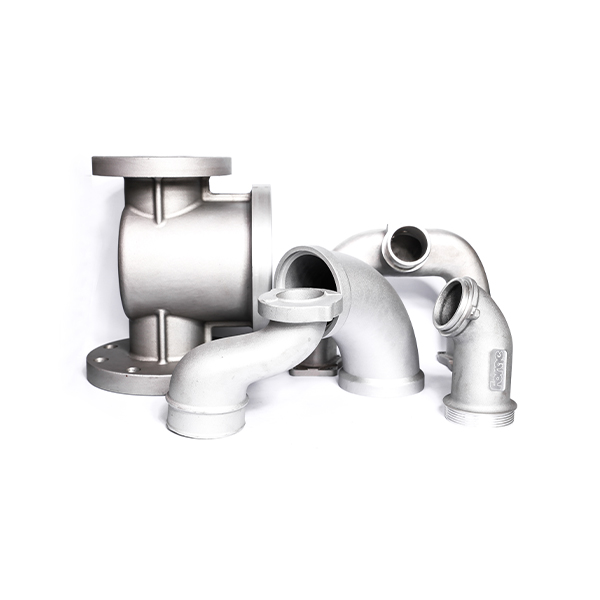Mobile:+86-311-808-126-83
Email:info@ydcastings.com
English
Electric Automobile Water Pump: Reliable Engine Cooling
The Critical Role and Evolution of the automobile water pump in Modern Automotive Engineering
In the intricate landscape of automotive engineering, the efficient management of engine temperature is paramount for optimal performance, fuel economy, and longevity. Central to this thermal management system is the automobile water pump. This device, responsible for circulating coolant through the engine's cooling system, prevents overheating and ensures the engine operates within its designed temperature range. As vehicle technology advances, especially with the rise of electric and hybrid powertrains, the demands on water pump designs are evolving, pushing manufacturers towards more sophisticated and energy-efficient solutions.
Modern automotive systems, including complex engine manifolds and increasingly compact engine bays, necessitate highly reliable and precise cooling components. The transition from traditional mechanical pumps to advanced automotive electric water pump systems highlights a significant industry trend towards greater control, reduced parasitic losses, and improved overall efficiency. This section delves into the critical aspects of water pump technology, exploring its manufacturing, technical specifications, and strategic advantages for B2B applications.
Industry Trends and Technological Advancements in Cooling Systems
The automotive industry is undergoing a profound transformation, driven by stringent emission regulations, the proliferation of electric vehicles (EVs), and the continuous pursuit of enhanced fuel efficiency in internal combustion engines (ICEs). These factors are directly influencing the design and functionality of the automobile water pump.
- Electrification Trend: The most significant shift is towards the automotive electric water pump. Unlike traditional belt-driven mechanical pumps, electric pumps operate independently of engine speed, allowing for precise control over coolant flow. This enables faster engine warm-up, better temperature management under varying load conditions, and reduced parasitic drag on the engine, contributing to improved fuel economy and lower emissions. For hybrid and battery electric vehicles, electric water pumps are indispensable for managing battery thermal systems, power electronics, and electric motors.
- Thermal Management Complexity: Modern engines feature increasingly complex thermal loops, often requiring multiple water pumps to manage different temperature zones or systems (e.g., engine block, turbocharger, exhaust gas recirculation, transmission oil cooler, and climate control). This complexity demands integrated system design and highly reliable components.
- Material Innovations: Advancements in materials are leading to lighter, more durable, and corrosion-resistant pump components. Composites, high-performance plastics, and advanced aluminum alloys are replacing traditional cast iron, reducing weight and improving efficiency.
- Smart Integration: Future trends point towards smarter, connected cooling systems. Water pumps equipped with integrated sensors and intelligent control units will communicate with the vehicle's ECU to optimize thermal performance in real-time, adapting to driving conditions, ambient temperature, and even driver behavior.
Manufacturers supplying to the B2B automotive sector must adapt to these trends by offering versatile, high-performance, and technologically advanced water pump solutions that meet future mobility demands.
Manufacturing Process of the Automobile Water Pump
The production of a high-quality automobile water pump is a multi-stage process that combines precision engineering with robust material science. Our manufacturing approach emphasizes meticulous control at every stage to ensure durability and performance.
Key Materials:
- Housings: Typically high-strength aluminum alloys (e.g., A356, A380) for lightweight and corrosion resistance, or sometimes cast iron for heavy-duty applications.
- Impellers: Engineered plastics (e.g., PPS, PPA, POM) for reduced inertia and cavitation resistance, or cast aluminum/brass for higher performance requirements.
- Shafts: Hardened steel alloys (e.g., stainless steel, carbon steel) for strength and wear resistance.
- Bearings: High-precision ball bearings or roller bearings, often sealed and pre-lubricated for extended service life.
- Seals: Mechanical seals featuring ceramic, silicon carbide, or carbon faces for robust sealing against coolant and extreme temperatures.
Manufacturing Process Flow:
-
Casting/Forging of Housing:
High-pressure die casting for aluminum housings ensures intricate geometries and excellent surface finish. For specific applications requiring extreme strength, forging may be employed. This stage focuses on achieving precise internal geometries critical for coolant flow.
-
CNC Machining:
Post-casting, critical surfaces, bearing seats, and seal bores undergo high-precision CNC machining. Tolerances are typically maintained within microns to ensure perfect fitment and prevent leaks. This step is vital for the smooth operation and longevity of the pump.
-
Impeller Molding/Casting:
Plastic impellers are injection molded, while metal impellers are typically die-cast. Design focuses on hydrodynamic efficiency to maximize flow rate and minimize cavitation.
-
Shaft and Bearing Assembly:
The pump shaft is pressed into the bearings and housed within the pump body. This assembly requires careful alignment and force control to prevent damage and ensure concentricity.
-
Seal Installation:
The mechanical seal, a critical component, is carefully installed. Proper seating and compression are essential for leak-free operation over the pump's service life.
-
Impeller Press-Fit:
The impeller is precisely pressed onto the shaft, ensuring correct clearance within the housing to optimize flow and prevent rubbing.
-
Final Assembly & Testing:
Components are assembled, and the completed pump undergoes rigorous testing. This includes leak tests, flow rate and pressure performance tests, noise and vibration analysis, and endurance testing to simulate real-world conditions. Our products adhere to international standards such as ISO 9001 for quality management and often comply with specific OEM standards.
Our water pumps are engineered for a service life exceeding 150,000 miles (approximately 240,000 km) for standard applications, with extended life options for heavy-duty or critical industrial use. They are extensively utilized in target industries such as automotive OEM, aftermarket parts, agricultural machinery, and light industrial applications requiring robust fluid transfer. In typical application scenarios, our pumps demonstrate significant advantages in energy saving through optimized impeller designs and minimized internal friction, as well as superior corrosion resistance due to advanced material selection and protective coatings, ensuring reliable operation even with aggressive coolants.

Technical Specifications and Performance Parameters
Understanding the technical specifications of an electric water pump for car applications is crucial for selecting the right component for specific engine architectures and cooling demands. Our products are designed to meet stringent performance benchmarks.
Typical Automobile Water Pump Specifications:
| Parameter | Value/Range | Unit |
|---|---|---|
| Flow Rate (Max) | 80 - 150 | Liters/minute (LPM) |
| System Pressure (Max) | 1.5 - 2.5 | Bar |
| Operating Voltage | 12 / 24 | V DC |
| Power Consumption | 50 - 250 | Watts |
| Operating Temperature Range | -40 to +120 | °C |
| Service Life (MTBF) | 20,000 - 30,000 | Hours |
| Material (Housing) | Aluminum Alloy / High-Grade Plastic | N/A |
| Noise Level | Typically | dB(A) |
Our engineers meticulously select materials and optimize designs to achieve these parameters, ensuring that each auto electric water pump provides reliable and consistent performance even under demanding conditions. Advanced flow simulation software (CFD - Computational Fluid Dynamics) is routinely used to refine impeller and volute designs, maximizing hydraulic efficiency and minimizing cavitation, a common issue leading to premature pump failure.

Application Scenarios and Technical Advantages
The versatility and robust design of our automobile water pump solutions allow for broad application across various automotive and industrial sectors. Our products are engineered to excel in scenarios demanding high efficiency, reliability, and precision thermal control.
Typical Application Scenarios:
- Automotive OEM & Aftermarket: Integral to engine cooling systems for passenger cars, light commercial vehicles, and heavy-duty trucks, ensuring optimal engine temperature.
- Hybrid and Electric Vehicles (HEV/EV): Critical for cooling battery packs, electric motors, and power electronics, which often operate at different optimal temperatures than ICEs.
- Heavy Machinery & Agriculture: Used in cooling systems for tractors, construction equipment, and other off-highway vehicles where robust and reliable cooling is paramount due to harsh operating environments.
- Marine Applications: Adapted for marine engines where corrosion resistance and sustained performance in saline environments are key.
- Industrial Cooling Systems: Utilized in auxiliary cooling loops for stationary engines, generators, and specialized industrial equipment.
Technical Advantages:
- Precision Flow Control: Electric water pumps offer variable flow rates, enabling the engine to reach optimal operating temperature faster and maintaining it more precisely, leading to improved fuel economy and reduced emissions.
- Reduced Parasitic Losses: Decoupling the pump from engine speed eliminates the continuous parasitic load associated with mechanical pumps, especially beneficial during warm-up or low-load conditions.
- Enhanced Engine Warm-up: By controlling coolant flow, electric pumps can delay circulation until the engine reaches a desired temperature, reducing wear and improving cold-start emissions.
- Superior Material Durability: Utilization of advanced aluminum alloys and engineered plastics provides exceptional corrosion resistance against modern coolants and environmental factors, extending the pump’s service life.
- High Efficiency Design: Optimized impeller and housing geometries, developed through advanced CFD analysis, ensure maximum hydraulic efficiency, minimizing energy consumption while delivering required flow rates and pressure.
- Quiet Operation: Precision manufacturing and balancing techniques result in significantly lower noise and vibration levels compared to conventional mechanical pumps, enhancing cabin comfort.
Vendor Comparison and Customization Solutions
Choosing the right supplier for automotive electric water pump solutions is a critical decision for OEMs and large-scale industrial clients. We distinguish ourselves through a blend of technical prowess, manufacturing flexibility, and unwavering commitment to quality.
Comparative Advantages:
| Feature | Our Offering | Typical Competitor |
|---|---|---|
| Control System Integration | CAN/LIN Bus compatible, PWM control standard | Basic PWM, limited bus compatibility |
| Material Selection | Advanced Aluminum Alloys (A356, A380), High-Temp Engineered Plastics (PPS, PPA) | Standard Aluminum (A380), Generic Plastics (PA66) |
| Testing & Validation | ISO/TS 16949 certified, 100% End-of-Line testing, extensive durability cycles (thermal shock, vibration) | Basic functional testing, limited certifications |
| Customization Capability | Full engineering support for bespoke designs, unique mounting, flow/pressure tuning, material adaptation | Limited adaptation of existing models |
| Warranty Period | 24-36 Months (Industry Leading) | 12-18 Months (Standard) |
Customized Solutions:
Recognizing that off-the-shelf solutions may not always meet the unique demands of specific applications, we offer extensive customization services for the automobile water pump. Our engineering team collaborates closely with clients from concept to production, providing:
- Design and Prototyping: Tailored pump housing designs, impeller geometries, and motor specifications to perfectly integrate with existing engine architecture or novel cooling loops. This includes optimization for specific flow rates, pressure heads, and noise requirements.
- Material Adaptation: Selection of specialized materials for extreme temperature ranges, aggressive coolant chemistries, or weight reduction targets.
- Integrated Control Electronics: Development of custom control units with specific communication protocols (e.g., CAN, LIN) and diagnostic features to seamlessly interface with vehicle ECUs.
- Mounting and Connection Interfaces: Adaptation of mounting brackets, inlet/outlet port sizes, and connector types to ensure plug-and-play compatibility and ease of installation.
Our agility in customization, combined with stringent quality control, makes us an ideal partner for innovative automotive projects requiring bespoke cooling solutions.

Application Case Studies & Customer Experience
Our commitment to performance and reliability is demonstrated through successful deployments and positive client feedback. These case studies highlight the tangible benefits our auto electric water pump solutions bring to various applications.
Case Study 1: Enhanced Thermal Management for a Hybrid Powertrain
- Challenge: A leading automotive OEM developing a new hybrid SUV faced challenges in efficiently managing the distinct thermal requirements of its gasoline engine, electric motor, and high-voltage battery pack. The existing mechanical pump system proved inadequate for independent zone cooling and optimized warm-up cycles.
- Solution: We developed a customized twin-loop electric water pump for car system. One pump was dedicated to the ICE with smart warm-up functionality, and another, independently controlled pump managed the electric drive components and battery. Our design incorporated high-efficiency brushless DC motors and integrated CAN communication.
- Results: The OEM reported a 7% improvement in overall fuel economy due to faster engine warm-up and reduced parasitic losses. Battery life was extended by 15% through more stable temperature regulation. Customer feedback highlighted improved vehicle reliability and performance in diverse climates. Our solution received ISO/TS 16949 certification and contributed to the vehicle receiving top marks in thermal efficiency tests.
Case Study 2: Heavy-Duty Truck Engine Cooling in Extreme Conditions
- Challenge: A major truck manufacturer required a highly durable automobile water pump for its new line of heavy-duty vehicles operating in regions with extreme temperature fluctuations (from -40°C to +50°C) and continuous high-load operations. The primary concern was extended service life and resistance to coolant degradation.
- Solution: We provided a robust, cast-iron bodied mechanical water pump with an upgraded silicon carbide mechanical seal and a heavy-duty bearing assembly. The impeller was custom-designed for optimal flow at lower RPMs, improving efficiency during long-haul operations. All components were subjected to accelerated life testing exceeding 50,000 hours in thermal cycling chambers.
- Results: The new water pumps exhibited a 30% increase in mean time between failures (MTBF) compared to previous components. Field data showed exceptional performance in maintaining engine temperatures, even when towing maximum loads through mountainous terrain. The manufacturer standardized our pump across their heavy-duty lineup, citing our product's reliability and superior material science.
Our decade-long service in the B2B automotive sector has fostered strong partnerships with leading global manufacturers, a testament to our consistent delivery of high-quality, high-performance cooling solutions. We regularly incorporate customer feedback into our R&D cycle, ensuring our products continuously meet and exceed market expectations.
Trustworthiness: FAQ, Lead Time, Warranty & Support
Transparency and support are cornerstones of our client relationships. We aim to provide clear information on all aspects of our service, from technical inquiries to after-sales support for your automobile water pump needs.
Frequently Asked Questions (FAQ):
- Q: What is the typical lead time for custom auto electric water pump orders?
- A: For standard products, lead time is typically 4-6 weeks after order confirmation. Custom designs and large-volume OEM orders may require 10-16 weeks, depending on complexity and material availability. We work closely with clients to establish realistic timelines during the quotation phase.
- Q: What is your warranty policy for water pumps?
- A: We offer an industry-leading 24 to 36-month warranty from the date of shipment, or a specified mileage/hour limit, whichever comes first, against defects in materials and workmanship. Specific terms may vary based on product type and application, detailed in our official sales agreements.
- Q: How do you ensure product quality and reliability?
- A: Our quality management system is ISO 9001 and ISO/TS 16949 certified. Every automobile water pump undergoes 100% end-of-line testing, including leak tests, functional performance checks (flow, pressure, current draw), and noise/vibration analysis. Batch testing includes accelerated life cycle, thermal shock, and environmental chamber tests.
- Q: Do you provide technical support and after-sales service?
- A: Absolutely. Our dedicated technical support team is available for assistance with product selection, installation guidance, and troubleshooting. We also offer comprehensive after-sales support, including spare parts availability and field service for critical applications, ensuring long-term operational success.
Lead Time & Fulfillment:
Our robust supply chain and efficient manufacturing processes allow us to offer competitive lead times. We maintain strong relationships with raw material suppliers and optimize our production schedules to meet client demands. For urgent requirements, expedited production options may be available upon request, subject to capacity and material availability.
Warranty Commitments:
Our warranty reflects our confidence in the quality and durability of our products. Should any product fail due to manufacturing defects within the warranty period, we commit to repair, replacement, or credit, ensuring minimal disruption to your operations. All warranty claims are handled promptly and professionally by our dedicated customer service team.
Customer Support:
We provide multi-channel customer support, including direct phone lines, email, and dedicated account managers. Our support team is trained to handle technical queries, order tracking, and any other assistance required, ensuring a seamless experience for our B2B partners.
References
- Society of Automotive Engineers (SAE) International, "Electric Water Pump Performance and Application in Modern Internal Combustion Engines." SAE Technical Paper Series.
- "Advanced Thermal Management Systems for Hybrid and Electric Vehicles," Journal of Automotive Engineering, Vol. 235, Issue 7, pp. 1100-1115.
- International Organization for Standardization (ISO) 16949: Quality management systems — Particular requirements for the application of ISO 9001:2008 for automotive production and relevant service part organizations.
- "Impact of Electric Water Pumps on Engine Warm-Up and Emissions," Proceedings of the FISITA World Automotive Congress.
-
Materials Used in Manufacturing Cap End Pipe FittingsNewsNov.24,2025
-
Material Properties of CF8M CastingNewsNov.24,2025
-
How to Inspect Pump Cap Ends for DamageNewsNov.21,2025
-
Backward Curved Impeller – Efficient Airflow Solutions for Industry | YD CastingsNewsNov.21,2025
-
Automobile Water Pump - Efficient, Quiet, Durable & ElectricNewsNov.21,2025
-
Impeller for Pumps – High-Efficiency, Durable, OEM-ReadyNewsNov.21,2025











